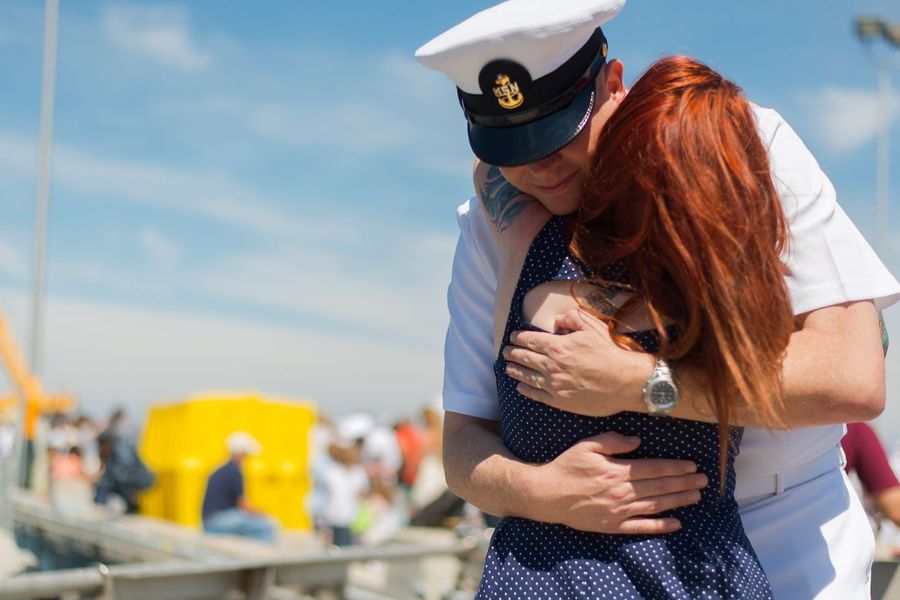Veteran Emergency Financial Assistance

Locations
- Catholic Charities Atlanta, Georgia
Focus Areas
- Housing
- Self-Sufficiency
"Our work with the LEO team will demonstrate the impact of our intervention and guide our change to stay true to our goal of creating self-sufficient families. We want to make sure whatever we are doing for our veteran clients, we are doing most effectively and efficiently."
The Issue
Military veterans face unique challenges that can make it tough to successfully transition to and live life as a civilian. Employment prospects, housing stability, and health can all be more difficult as veterans work to navigate these challenges.
An example from just one state: about one-sixth of Georgia’s veteran population reported living in inadequate conditions in 2017—in unsafe or run-down homes, doubled-up with friends or extended family members, or burdened with rent or mortgage payments that took up a significant portion of their budget. Further, about 700 Georgia veterans are homeless on any given day. Veterans also tend to experience persistent physical and mental health issues that exacerbate other challenges. Around 22% of Georgia veterans are living with service-related disabilities, creating even more obstacles to employment and sufficient finances to meet their needs.
Researchers have given considerable attention to personal and institutional factors related to veterans’ transition to civilian life. Studies by Keeling et al. and Tsai & Rosenheck point to several reasons why veterans struggle, including physical and psychological disability and societal and organizational barriers. And although the research generally suggests that veteran outcomes improve over time, men and women who have just left the military still have needs that can’t wait, like a safe and stable place to live, accessible health care, and employment. Resources to support them in these and other areas of their lives are crucial to their future success.
Emergency financial assistance (EFA) may be one of those resources. Designed to alleviate short-term crises for low-income individuals, research shows that EFA can make it less likely that individuals become homeless. However, we still don’t know how EFA specifically impacts the well-being of veterans. And this is an important question to figure out. Just like they have done for Americans everywhere, we owe it to veterans to ensure their safety, security, and future opportunity.
The Intervention
Catholic Charities Atlanta developed its Veteran EFA program to help Georgia veterans overcome immediate crises that threaten to derail them from their promising path as civilians. Eligible veterans can receive up to $700 for rent or utility payments to help them stay safely and comfortably in their homes. The program also includes case management services for help with budgeting household finances and accessing resources to address other needs. Case managers check in with clients 30, 60, and 90 days after they receive services to ensure they are maintaining their stability.
Research Question
Does emergency financial assistance improve housing and financial stability for veterans?
Intended Outcomes
- Veterans who receive services from the Veteran EFA program will experience higher housing stability.
- They will also have better financial stability compared with those who don’t receive services.
Research Study Design
The evaluation of Catholic Charities Atlanta’s EFA program is a randomized controlled trial. Because Catholic Charities Atlanta has limited resources, they can’t provide financial assistance to everyone who applies. Applicants who consent to join the study are entered into a lottery for assistance. Those who are randomly chosen by the lottery to be in the treatment group are given up to $700 of emergency funds. Those not selected by the lottery are not offered the emergency funds; they are members of the control group.
At the conclusion of the study, researchers will compare the housing stability, financial stability, health, and employment outcomes of the veterans who received emergency funding with those who did not.